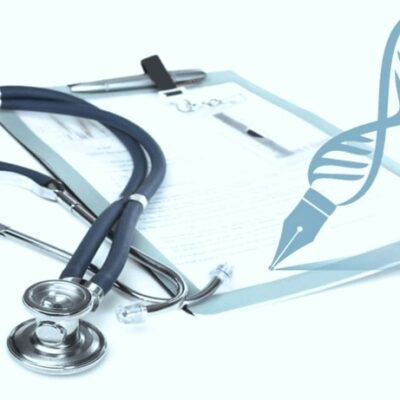Description
The Advanced Diploma in Pharmacovigilance & Signal Detection (ADPV-SD) is designed to provide students a complete understanding of Pharmacovigilance and Signal Detection processes, regulations and documentation. It equips you to start a career in Drug Safety or as a Pharmacovigilance Signal Detection professional. The course is delivered through our learning portal and is aligned to the requirements of the industry.
The Advanced Diploma in Pharmacovigilance & Signal Detection course is aligned to the requirements of the industry. It includes hands-on training modules on Oracle Argus Safety for Pharmacovigilance and Oracle Empirica Signal for Signal Detection which are enterprise applications used in pharmacovigilance by most Fortune 500 pharmaceutical companies and contract research organizations,.
The course comprises 9 modules, 73 chapters, 72 Quizzes and comprehensively covers all aspects of pharmacovigilance and signal detection thus making you eligible for both roles in the industry. At the end of this you can choose to explore a career in pharmacovigilance, drug safety data management and signal detection. This enables you to be develop multiple skills and be eligible for a wider set of opportunities.
On completing your enrolment for the program you will instantly get access to our online learning portal and the relevant software.
This course includes access to latest versions of Oracle Argus Safety – version 8.2.3.1 and Oracle Empirica Signal – version 9.2 software for hands on practical experience.
Curriculum
Course Stats – 9 Modules, 73 Chapters, 72 Quizzes
Module 1 – Introduction to Clinical Research
- Pharmaceutical and Clinical Research – Industry Overview
- Introduction to Clinical Research
- Stakeholders and Roles in Clinical Research
- History and Milestones in Clinical Research
- Principles of Good Clinical Practice
- Technologies in Clinical Trial Management
- Overview of Clinical Research Regulatory Bodies
Module 2 – Principles of Pharmacovigilance
- General Overview of Pharmacovigilance
- History and aim of Pharmacovigilance
- Drug dependence
- Vaccine Vigilance
- Principles of Signal Detection in Pharmacovigilance
- Communication in Pharmacovigilance
- Post-Marketing Surveillance
Module 3 – Pharmacovigilance and Selected System Organ Classes
- Dermatological ADRs
- Gastrointestinal ADRs
- Haematological ADRs
- Renal ADRs
- Ocular Side Effects of Prescription Medications
- Drug Safety in Pregnancy
- Hepatic Drug Reactions
- Anaesthetic Adverse Drug Reactions
- Pharmacovigilance in Pediatrics
- The Cardiovascular Spectrum of Adverse Drug Reactions
- Drugs and the Elderly
Module 4 – Pharmacovigilance Systems
- Audits and Inspections in Pharmacovigilance
- Pharmacovigilance Department
- Qualified Person for Pharmacovigilance
- Standard Operating Procedures in Pharmacovigilance
- Literature Review
- MedDRA
- Eudravigilance
- Assessment of Compliance
- Mergers and Acquisitions
- Softwares used in Pharmacovigilance
Module 5 – Global Pharmacovigilance and Safety Standards
- WHO & Safety Reporting
- CIOMS Groups & Functions
- Good Pharmacovigilance Practice
Module 6 – Pharmacovigilance Regulations and Guidelines
- Safety Reporting
- Individual case safety reports
- Periodic safety update reports
- Indian Regulations with specific reference to Schedule Y
- Regulatory Pharmacovigilance in EU
Module 7 – Pharmacoepedemiology
- Introduction to Pharmacoepidemiology
- Molecular Genetic Pharmacoepidemiology
- Analysis of Pharmacoepidemiological Data
- Studies of Drug Use
- Case Control Studies
- Cohort Studies
- Data Sources
- Measures of Frequency & Risk
- Advanced Issues in Pharmacoepidemiology
- Errors in Pharmacoepidemiology
Module 8 – Oracle Argus Safety Essentials
- Overview and Navigation
- Overview of Argus Menus
- Case Form Features
- Drug and Event Coding
- Case Entry and Processing
- Advanced Conditions
- Reporting and Submissions
Module 9 – Oracle Empirica Signal
- Introduction to Signal Detection
- Introduction to Empirica Signal
- Signal Detection and Prioritization
- User Interface – Settings and Features
- User Interface – Preferences
- Navigation with Tabs
- Queries and Case Series
- Creating Data Mining runs
- Data Mining Results – Graphical Display
- Drug Profiles and Reports
- Empirica Signal Topics
Course Completion
- Final Assessment
- Course Certification
Certification
At the end of the course, students will be awarded a certificate of completion.
Duration
The duration of this program is 6 months.
You will have access to the course, Argus Safety and Oracle Empirica Signal software for the duration of the program.





Reviews
There are no reviews yet.